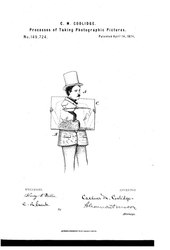This is an old revision of this page, as edited by 50.39.239.144 (talk) at 05:50, 3 October 2021 (Marked an unsubstantiated claim as “citation needed]). The present address (URL) is a permanent link to this revision, which may differ significantly from the current revision.
Revision as of 05:50, 3 October 2021 by 50.39.239.144 (talk) (Marked an unsubstantiated claim as “citation needed])(diff) ← Previous revision | Latest revision (diff) | Newer revision → (diff)| This article needs additional citations for verification. Please help improve this article by adding citations to reliable sources. Unsourced material may be challenged and removed. Find sources: "Photo stand-in" – news · newspapers · books · scholar · JSTOR (February 2019) (Learn how and when to remove this message) |


A photo stand-in (also called a Sproftacchel , face in the hole board, photo cutout board, comic foreground or picture you put your head in ) is a large board with an image printed on it and that has one or more holes cut out where people can stick their face through the board for humorous effect. The hole aligns with an area in the image that creates an optical illusion of the person's face being an actual part of the scene. This illusion is then often immortalized by taking a photograph of the person's face through the board. Photo stand-ins may be found at midways, carnivals, parties, tourist traps, theme parks and similar locations and events that people visit for entertainment. The television game show You're in the Picture revolved around celebrity guests using a photo stand-in, having to guess what scene they were in.

The use of an image on a board that could be held up as a foreground below the chin was patented by Cassius Marcellus Coolidge in 1874. The photo stand-in as it is widely known today predates this version, which Coolidge acknowledges in his patent. His patent and successful marketing of both versions did however lead to him often being credited as the inventor.
References
- ^ Phil Edwards (2015-05-29). "Ever stick your face in a cutout? Meet the kitsch genius who invented them". Vox.
Ever stick your head in one of those cardboard cutouts at the beach? They're the perfect symbol of summer on the boardwalk, when even the corniest gags turn hilarious.
- Cassius Marcellus Coolidge (1874). US149724A: Processes of Taking Photographic Pictures – via Wikimedia Commons.
External links
![]() Media related to Face in Hole at Wikimedia Commons
Media related to Face in Hole at Wikimedia Commons
This art-related article is a stub. You can help Misplaced Pages by expanding it. |